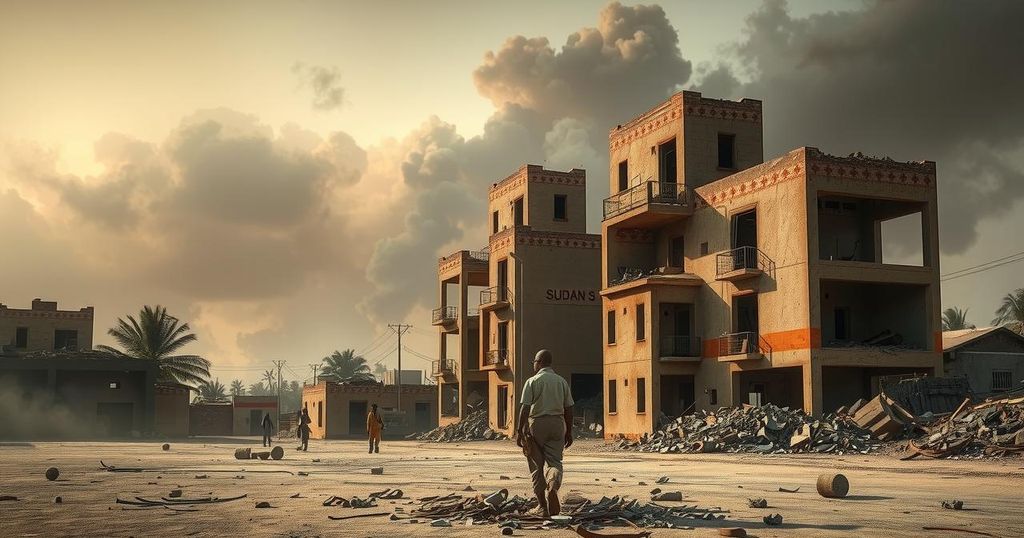Recent Developments in Sudan’s Civil War: Key Military Victories and Ongoing Humanitarian Crisis

The ongoing civil war in Sudan has seen the army achieve significant victories in Khartoum against the RSF. Despite these gains, the conflict continues to pose severe humanitarian challenges, with millions displaced and facing food shortages. Prospects for peace remain unclear as both factions maintain strong territorial control and escalate military actions.
The civil war in Sudan continues to escalate despite significant recent victories by the Sudanese Armed Forces (SAF) in the capital, Khartoum. The conflict, which has persisted for nearly two years, involves intense battles against the paramilitary Rapid Support Forces (RSF). Recent skirmishes indicate that the fighting may be far from resolution, raising concerns over the country’s territorial integrity.
This month, the SAF achieved notable successes, reclaiming key locations in Khartoum, including the airport and the presidential palace. Army chief Abdel Fattah al-Burhan declared Khartoum as “free” after reestablishing control, signaling a potential shift in the dynamics of the war. The airport had provided the RSF with vital logistical and strategic advantages since early in the conflict, making these victories critical for the SAF.
The recapture of Khartoum is seen as a pivotal moment, potentially altering battlefield momentum and international perceptions. Controlling the capital enhances the SAF’s negotiating position and may shift the power balance in ongoing hostilities. However, the underlying issues that sparked the conflict remain unresolved, complicating prospective peace talks.
Fighting persists not only in Khartoum but also across various regions, including Darfur and Kordofan, where both the SAF and RSF maintain significant territorial control. Despite the recent military gains, neither faction has achieved a decisive advantage, and the prospect of a political settlement remains dim, as both sides launch extensive air strikes resulting in civilian casualties.
The humanitarian impact of this conflict is devastating. Over 12 million individuals have been displaced, with alarming hunger levels affecting nearly 25 million people, according to UN reports. Conditions in refugee camps and makeshift shelters are dire, and the ongoing violence further hampers humanitarian efforts and agricultural productivity.
Experts warn of the potential for Sudan’s partition amidst the ongoing power struggle between the generals. Last month, the RSF and associated allies formed a breakaway government, reflecting a shift in aspirations for governance and raising alarm among international observers. In the immediate future, a prolonged war of attrition appears likely, with insufficient indications of willingness from either side to negotiate or reach a compromise.
In conclusion, Sudan’s civil conflict remains deeply entrenched, with significant military shifts and continued humanitarian crises. While the SAF’s recent victories in Khartoum may influence the war’s trajectory, the unresolved root causes and ongoing territorial disputes point to a prolonged struggle. The international community’s role in mediating peace and alleviating humanitarian suffering is becoming increasingly critical as the crisis unfolds.
Original Source: www.aljazeera.com






